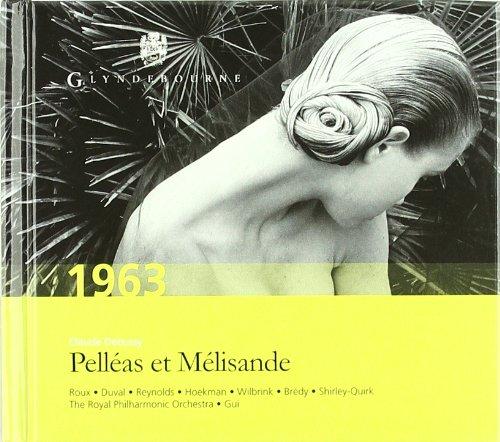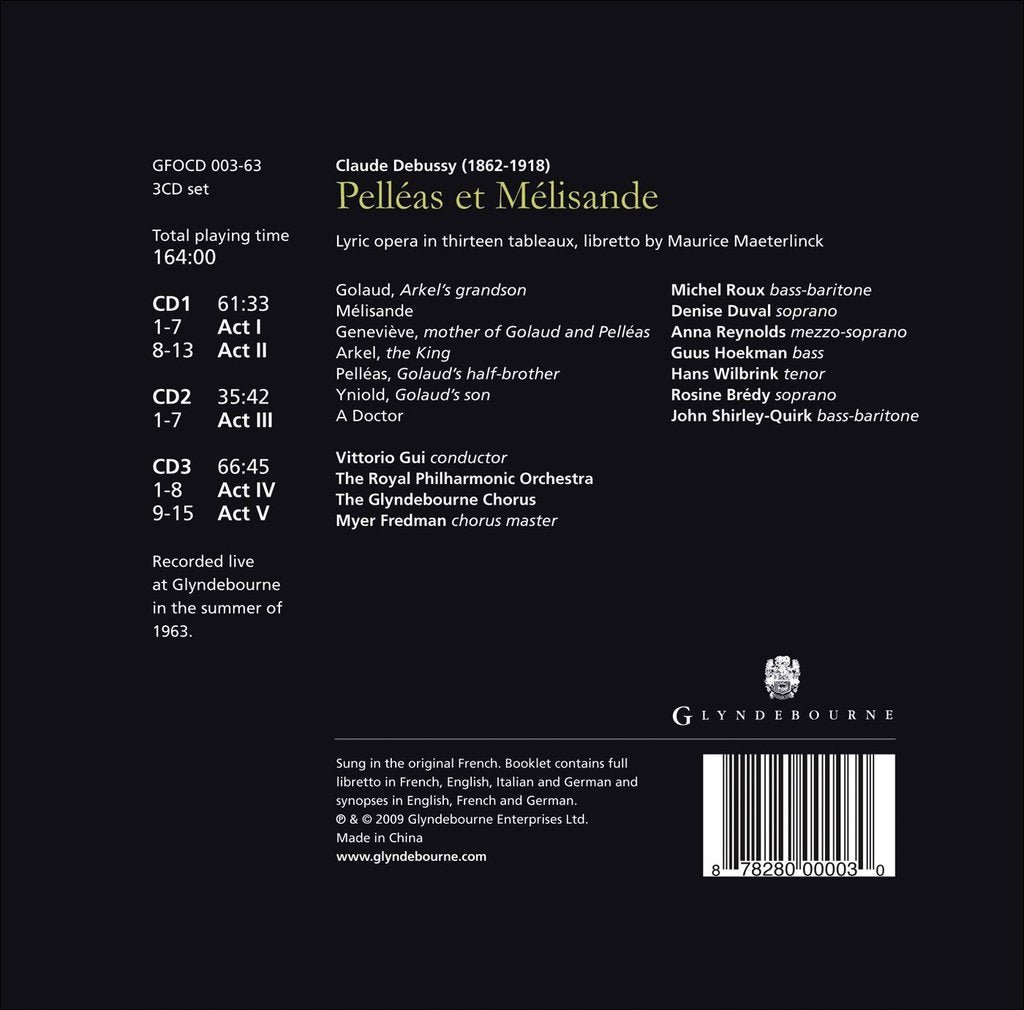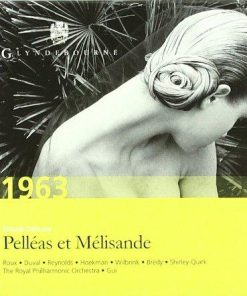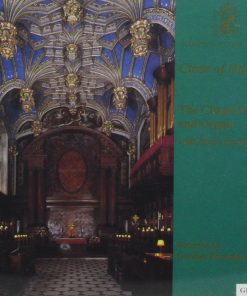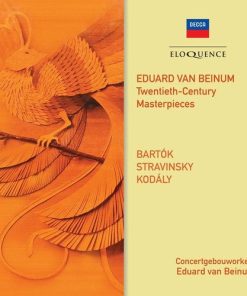DEBUSSY: PELLEAS AND MELISANDE – ROUX; DUVAL; REYNOLDS; GUI; GLYNDEBOURNE FESTIVAL CHORUS; ROYAL PHILHARMONIC (3 CDS) GLYNDEBOURNE
$ 2,99 $ 1,79


If Gui’s reading is ‘Italianate’, this is because it gives considerable though never excessive weight to the drama’s emotional intensity. The idea that Debussy’s opera is reticent from start to finish is a myth, and in this close-up recording the turbulent anguish of the orchestral interludes is especially vivid. When the focus is on the voices, the orchestra suffers to a degree in the restricted balance.
That bright hard edge which is the accursed associate of digital remastering is evident here too, though never to a disabling extent: better a hard edge than a pervasive lack of clarity. In 1963 Glyndebourne fielded a cast of French, Dutch and English singers whose handling of the French text stands up well in comparison with the best recent recordings. There is the minor incongruity of a very feminine Yniold, and also a Pelléas (Hans Wilbrink) whose occasionally strained moments suggest dramatic engagement rather than musical weakness. Gui’s Denise Duval is a persuasive, convincingly youthful Mélisande – although Act 1 scene 2 does rather underline the fact that Anna Reynolds, singing the mother of Golaud and Pelléas, was actually 10 years younger than Duval. The Golaud, Michel Roux, had recorded the role in 1955 and again in 1962 but he was not the first singer to find the Glyndebourne experience uniquely energising, and there is no lack of force in his telling portrayal of this most maddeningly obtuse of operatic characters. Guus Hoekman is an eloquent Arkel, and John Shirley-Quirk has all the necessary gravitas as the Doctor in Act 5. The packaging comes with full text (four languages) and production photographs but no biographies of the performers.
Debussy: Pelléas et Mélisande
Michel Roux (Golaud), Denise Duval (Mélisande), Anna Reynolds (Geneviève), Guus Hoekman (Arkel), Hans Wilbrink (Pelléas), Rosine Brédy (Yniold) & John Shirley-Quirk (A Doctor)
The Royal Philharmonic Orchestra & The Glyndebourne Chorus, Vittorio Gui
Pelléas et Mélisande was Claude Debussy’s only completed opera and the fantastical, imaginary world in which it is set, shimmers with Impressionist colour brought alive by his orchestral sound-world. The opera was first produced at Glyndebourne in 1962 as a tribute to Debussy’s centenary.
The highly acclaimed cast is led by Denise Duval, the pre-eminent French soprano of the day and artistic muse of Poulenc. The renowned conductor, Vittorio Gui, had known Debussy well – indeed Debussy’s stepdaughter attended the first night – and his performances attracted glowing reviews.
This recording is taken from the 1963 revival of the production and was to be the last time Artistic Director, Carl Ebert directed at Glyndebourne. Ebert worked at Glyndebourne for 30 years and of the vast body of his work, this production of Pelléas et Mélisande was considered, by many, to be his best ever.
Previously unreleased recording of Pelléas et Mélisande from the 1963 Glyndebourne Festival conducted by Vittorio Gui with Denise Duval.
This production was the last that Carl Ebert directed at Glyndebourne.
Recorded live at Glyndebourne in the summer of 1963.
Fast Shipping and Professional Packing
Due to our longstanding partnership with UPS FedEx DHL and other leading international carriers, we are able to provide a range of shipping options. Our warehouse staff are highly trained to pack your goods exactly according to the specifications that we supply. Your goods will undergo a thorough examination and will be safely packaged prior to being sent out. Everyday we deliver hundreds of packages to our customers from all over the world. This is an indication of our dedication to being the largest online retailer worldwide. Warehouses and distribution centers can be located in Europe as well as the USA.
Orders with more than 1 item are assigned processing periods for each item.
Before shipment, all ordered products will be thoroughly inspected. Today, most orders will be shipped within 48 hours. The estimated delivery time is between 3-7 days.
Returns
The stock is constantly changing. It's not entirely managed by us since we are involved with multiple parties such as the factory and our storage. The actual stock can fluctuate at any time. Please understand it may happen that your order will be out of stock when the order is placed.
Our policy is valid for 30 days. If you haven't received your product within 30 days, we're not able to issue either a return or exchange.
You are able to return a product if it is unused and in the same condition when you received it. It must also still remain in the original packaging.
